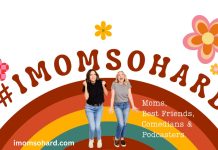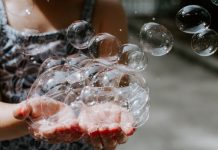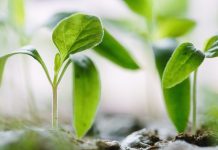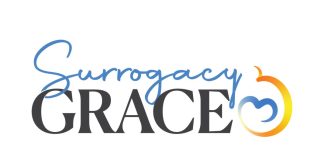In the last 100 years since the invention of plastic, less than 10% of the world’s plastic has been recycled. Yikes. I read this and looked around my house. Every piece of plastic glowed like a neon sign. Even though we reduce and reuse plastic — opting for reusable grocery bags, buying in bulk, and favoring hand-me-down toys over buying new — too much plastic has still seeped into our home.
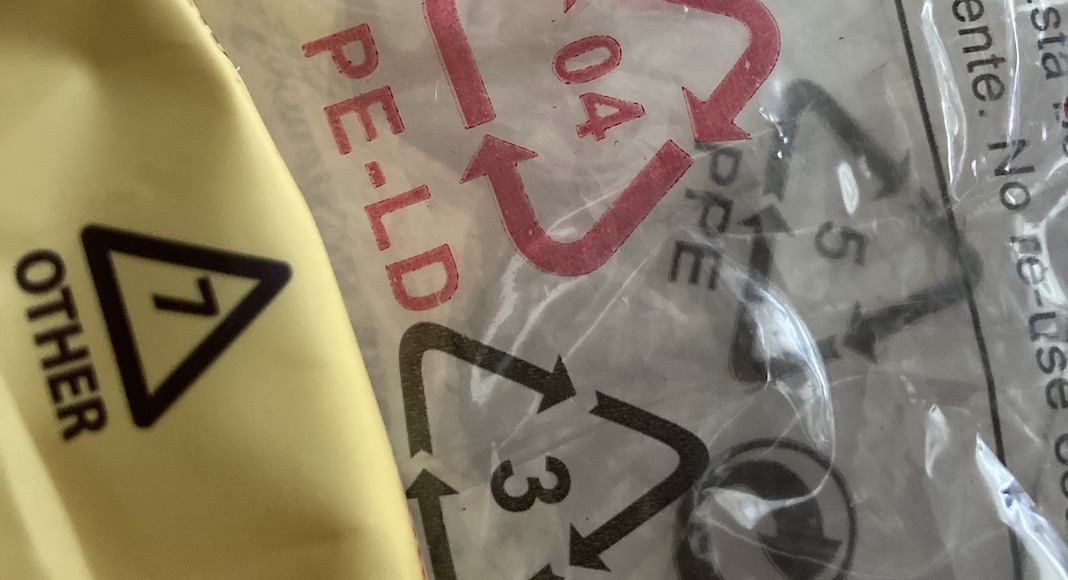
Plastics: A True Numbers Game
Seven types of plastic circulate in and out of our lives, sometimes on a daily basis.
The list of plastic items can go on and on: single use beverage bottles, detergent containers, shampoo and cleaning product bottles, shopping bags, food and produce bags, toys, packaging for said toys. You can imagine my shock when I easily found all seven types in my home, with only a little hunting. I cannot rewind and avoid the plastic items, so what do I do with them now?
Curbing Plastic in Portland
To start, I uncovered my “Portland Curbsider” buried on our cork board beneath post-its and takeout menus. Portland’s Bureau of Planning and Sustainability released this guide as a curbside garbage 4-1-1 in print form. While very informative, I needed a highlighter to learn we were making more than one recycling error. Despite carrying the trademark arrow triangle, many plastics cannot be recycled curbside because they require special processing.
Here are the five plastic curbside recycling mistakes we were making:
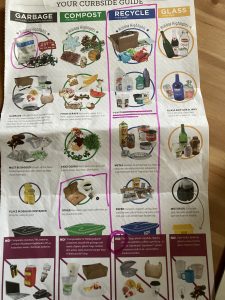
1. Not removing lids and bottle tops from items.
2. Adding plastic bottles less than six ounces.
3. Plastic bags including produce bags and food packaging (bags for grains, specialty flour, dry beans).
4. Coffee cups and lids.
5. Post Christmas packaging items (bubble wrap, styrofoam, plastic combined with cardboard boxes, i.e. battery boxes, see through windows).
Gathering, Sorting, Delivering
Now that we knew our mistakes, I wanted to see if I could recycle these other items elsewhere.
Lids, bottle tops, styrofoam, hot coffee lids, containers less than six ounces, and several other items can be recycled for a small fee at the James’ Neighborhood Recycling events held quarterly in Portland. I also mentioned such events to several neighbors, and a few were interested in working together to divert our recyclable garbage. This has the double bonus of being cost effective (you pay by the bag, might as well fill the bag) and keeps recyclable material out of the landfill.
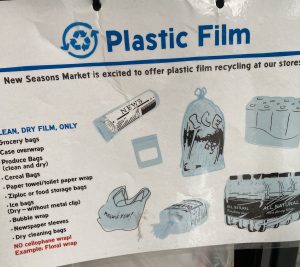 Luckily, most grocery stores still accept the plastic bags for produce and for groceries and bubble wrap, however, they do not accept the number 7 “other” plastic food bags. However, the Terracycle website has answers to number 7, and also has a list of organizations which recycle their own brand as well as similar products, such as Brita, Lundberg Family Farms, Swiffer, Tom’s of Maine, Hasbro Toys and Colgate to name a few.
Luckily, most grocery stores still accept the plastic bags for produce and for groceries and bubble wrap, however, they do not accept the number 7 “other” plastic food bags. However, the Terracycle website has answers to number 7, and also has a list of organizations which recycle their own brand as well as similar products, such as Brita, Lundberg Family Farms, Swiffer, Tom’s of Maine, Hasbro Toys and Colgate to name a few.
Finding Community Through Change
The original shock I felt over our plastic recycling errors has lessened with the discovery of so many alternative recycling options. Exploring the Terracycle website helped us find a local Colgate Oral Care Recycling Solution drop site where we could recycle any toothbrushes and empty toothpaste tubes. Similarly, the James’ Neighborhood Recycling event provides home for all of those plastic to-go containers in abundance because of the pandemic.
The quest to responsibly recycle our plastics led me to other things I had not anticipated. Not only did I bond and collaborate with my immediate neighbors, I also met new neighbors through two social media communities, one focused in my neighborhood (Buy Nothing subgroup) and the other unique to Portland (ZeroWastePDX). Both groups favor responsible consuming and keeping items from landfills while promoting community bonding.
Avoiding plastic will ultimately save me time by eliminating the sorting, organizing, and dropping off of items, not to mention decreasing carbon emissions from shipping and processing recycling materials. I am also envisioning the fun of a family toothpaste-making project. Stay tuned.


